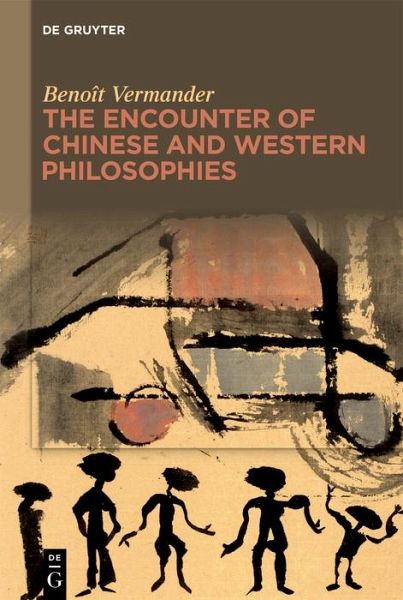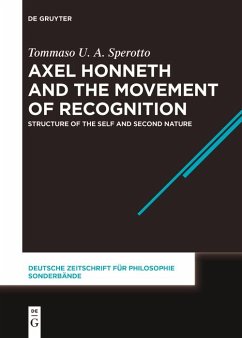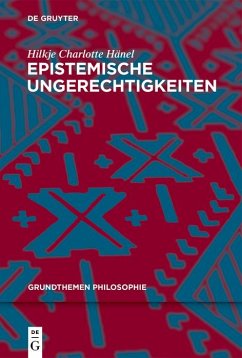
The Encounter of Chinese and Western Philosophies (eBook, ePUB)
A Critique
Versandkostenfrei!
Sofort per Download lieferbar
0,00 €
inkl. MwSt.
Weitere Ausgaben:

PAYBACK Punkte
0 °P sammeln!
Vermander revisits the encounter between Chinese and Western philosophy while unfolding questions about the way "comparative philosophy" is conducted today. In the vulgate of intellectual history, "Western thought" has constructed a substantialist view of reality that puts "relations" and "processes" into a subordinate position. The same view explains for the primacy given to the autonomy of individual beings. In contrast, according to the same vulgate, Chinese thought has been stressing the fluidity of all phenomena and forms of life to best adapt to their overarching patterns. The critique ...
Vermander revisits the encounter between Chinese and Western philosophy while unfolding questions about the way "comparative philosophy" is conducted today.
In the vulgate of intellectual history, "Western thought" has constructed a substantialist view of reality that puts "relations" and "processes" into a subordinate position. The same view explains for the primacy given to the autonomy of individual beings. In contrast, according to the same vulgate, Chinese thought has been stressing the fluidity of all phenomena and forms of life to best adapt to their overarching patterns.
The critique of these representations is a preliminary for tackling the following question: in today's context, what style of cross-cultural philosophical engagement should be imagined and fostered? Cross-cultural philosophical dialogue is indeed indispensable to the revival of philosophies that could be both local and genuinely dialogic.
The first two chapters focus upon the dominant model propounded by Western sinologists when it comes to comparing the Western philosophical tradition with the Chinese one. The third chapter shifts to Chinese narratives about local, comparative, and global philosophies, notably assessing its self-positioning vis-à-vis Western authors, topics, and concepts. Chapter 4 offers a general reading of ancient Chinese classics, alternative to the one that presently dominates the landscape described in Chapters 1 to 3. Chapter 5 harnesses the results and insights already gathered, offering a blueprint as to the way to positively draw upon different philosophical traditions to engage common questions and pursue shared endeavors. A last chapter presents four cases of ongoing transcultural philosophical dialogues and the promises they bear, while the conclusion recapitulates the journey and opens further perspectives.
Once it develops outside pre-formatted narratives, the web shaped by our philosophies and wisdoms suggests the outlines of a world that we could inhabit together.
In the vulgate of intellectual history, "Western thought" has constructed a substantialist view of reality that puts "relations" and "processes" into a subordinate position. The same view explains for the primacy given to the autonomy of individual beings. In contrast, according to the same vulgate, Chinese thought has been stressing the fluidity of all phenomena and forms of life to best adapt to their overarching patterns.
The critique of these representations is a preliminary for tackling the following question: in today's context, what style of cross-cultural philosophical engagement should be imagined and fostered? Cross-cultural philosophical dialogue is indeed indispensable to the revival of philosophies that could be both local and genuinely dialogic.
The first two chapters focus upon the dominant model propounded by Western sinologists when it comes to comparing the Western philosophical tradition with the Chinese one. The third chapter shifts to Chinese narratives about local, comparative, and global philosophies, notably assessing its self-positioning vis-à-vis Western authors, topics, and concepts. Chapter 4 offers a general reading of ancient Chinese classics, alternative to the one that presently dominates the landscape described in Chapters 1 to 3. Chapter 5 harnesses the results and insights already gathered, offering a blueprint as to the way to positively draw upon different philosophical traditions to engage common questions and pursue shared endeavors. A last chapter presents four cases of ongoing transcultural philosophical dialogues and the promises they bear, while the conclusion recapitulates the journey and opens further perspectives.
Once it develops outside pre-formatted narratives, the web shaped by our philosophies and wisdoms suggests the outlines of a world that we could inhabit together.
Dieser Download kann aus rechtlichen Gründen nur mit Rechnungsadresse in A, B, BG, CY, CZ, D, DK, EW, E, FIN, F, GR, HR, H, IRL, I, LT, L, LR, M, NL, PL, P, R, S, SLO, SK ausgeliefert werden.













